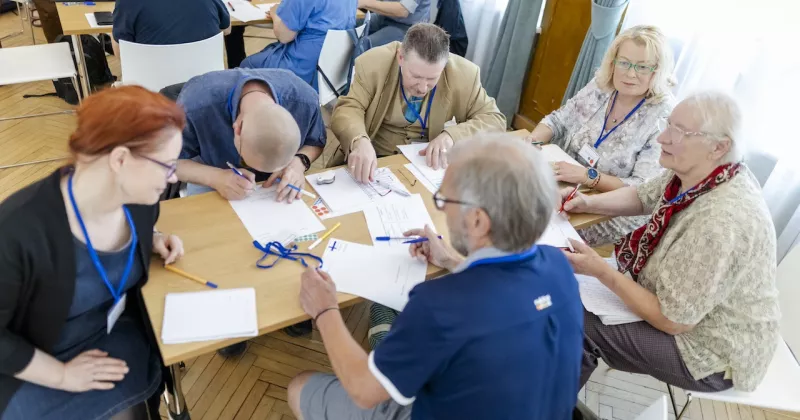Council Resolution on a New European Agenda for Adult Learning 2021-2030

On 29th November 2021, the Council of the European Union adopted the Resolution on a New European Agenda for Adult Learning 2021-2030. The document is a continuation of the 2011 European Agenda for Adult Learning, that highlighted the need to increase participation in adult learning of all kinds, whether it was formal, non-formal or informal learning. The 2011 Agenda set the target of 15% of adults, aged 25-64, who should have taken part in adult education.
The Education and Training Monitor 2020 reports that participation in adult learning is still low, with an average of 10.8% of adults participating in adult learning in the four weeks prior to the 2019 survey. Furthermore, Eurostat 2020 data show that participation in adult learning is now even lower after the COVID-19 pandemic, with an average of only 9.2 % of adults participating in adult learning.
The New European Agenda for Adult Learning 2021-2030 (NEAAL 2030) continues to point out the utmost importance of adult learning, now more than ever, due to the challenges brought by the Covid-19 crisis. There is the need, in fact, to emphasise the relevance of basic skills for all and of continuously acquiring knowledge, skills and competences at all levels, in formal, non-formal and informal learning contexts. That is because individuals that take part in lifelong learning are better equipped to adapt to new circumstances, develop skills they need for jobs and enhance their employment prospects. Additionally, lifelong learning contributes to an increased involvement in society and it supports personal and social development, the health and wellbeing of the people, taking into consideration the individual’s needs and aspirations.
The impacts of the COVID-19 pandemic as well as the digital and green transitions, have undoubtedly accelerated changes in how we live, learn and work. People need to update their knowledge, skills and competences to fill the gap between their education and training and the demands of a rapidly changing labour market. In this context, the Council recognises that, in order to face the impacts of the demographic change, as well as addressing the green and digital transitions, new approaches are required to facilitate the participation of adults in lifelong learning, as well as to support their full integration and participation in society.
Until now, the measures proposed at European level did not propose a holistic lifelong learning approach, as they often strongly focused on workplace learning and basic skills. While these areas are very important, adults cannot be left behind. A broad and holistic approach towards adult learning needs to be strengthened, giving equal importance to all sectors and all forms of learning - formal, non-formal and informal learning. Furthermore, education policies and strategies need to move towards being learner centred. Anyone can learn, regardless of age and background, and learning programmes need to take the learners' needs into account.
Based on these assumptions, the objective of the New European Agenda for Adult Learning 2021-2030 (NEAAL 2030) is to increase and improve the provision, promotion and take-up of formal, non-formal and informal learning opportunities for all, setting new targets to be achieved: at least 47% of adults aged 25-64 should participate in learning by 2025 and at least 60% of adults should participate in learning by 2030. In order to do so, the Agenda outlines a vision of how adult learning should develop in Europe by 2030 in five main priority areas:
-
Governance, with the strengthening of a partnership between governments, regional and local authorities, education and training providers, companies, social partners, public employment and social services as well as civil society. This cooperation should aim to meet the needs of adult learners and employers, including the funding of adult learning initiatives;
-
Supply and take-up of lifelong learning opportunities that should focus on making adult learning more tailor-made and based on the individual’s needs;
-
Accessibility and flexibility of time, place, resources, forms of organisation and implementation, as well as a variety of approaches and measures to increase participation, inclusion and motivation for learning because, to fit in with their life and work responsibilities, flexibility is essential to increase the number of adults in learning;
-
Quality, equity, inclusion and success in adult learning. Adult learning is important for fostering gender equality and solidarity between different age groups, cultures and people from different backgrounds; in this context, national governments should consider implementing incentives to eliminate any barrier that people from disadvantaged groups encounter; and
-
The green and digital transitions call for every individual to develop new and necessary green and digital skills to work and live in a digital environment and to adapt to the ever-changing labour market.
In conclusion, today more than ever, adult education and learning can play a decisive role in shaping the future of Europe, equipping people with the knowledge and skills necessary to become engaged citizens while meeting the demand for new skills plus answer the needs of the labour market.
Therefore, this calls for a strong adult education policy at European level, and the New Agenda for Adult Learning is surely a step in the right direction.






sustainability
I wonder why sustainability is not so clearly high up on the agenda, in particular in light of the climate change challenge.